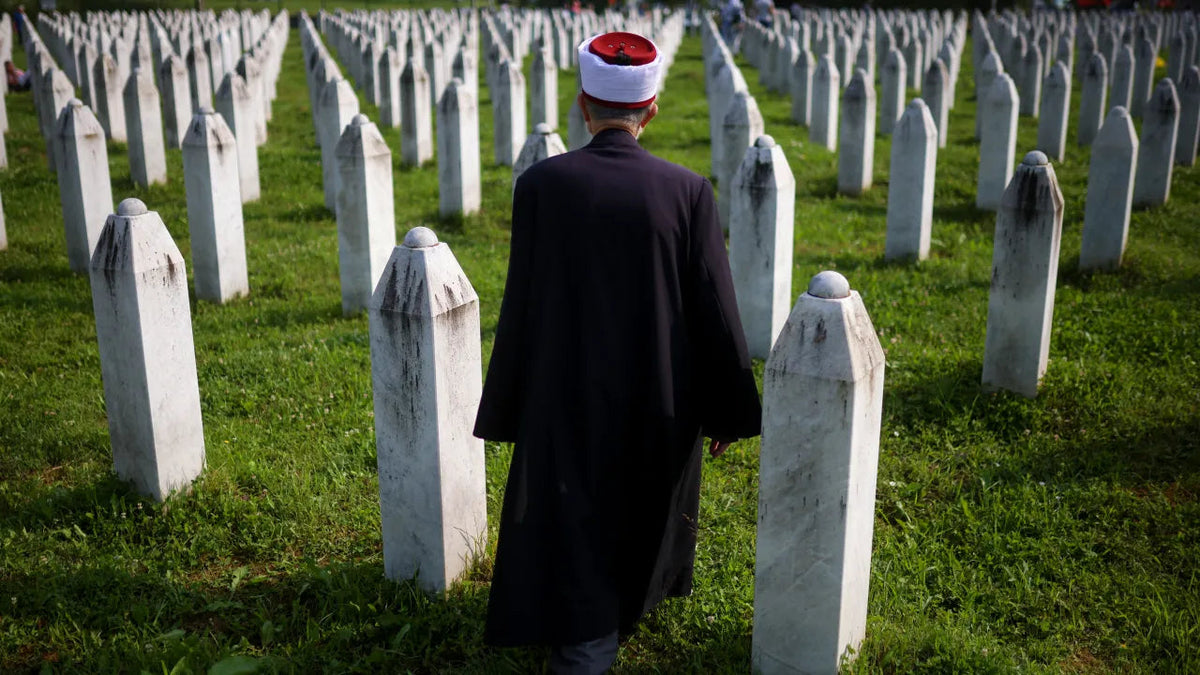
The Muslim Approach to Death and the Hereafter
|
|
Time to read 5 min
|
|
Time to read 5 min
Death is a subject that often invokes dread and apprehension in the hearts of many, despite being an inevitable part of life. Grappling with the loss of loved ones and confronting our own ephemeral existence can be among the most challenging experiences we will ever face. For Muslim believers, however, death is not an end but rather a transitory passage to another phase of life. This is the solace, hope, and guidance that faith offers us when confronted by this overwhelming reality.
Central to the believer's approach to death and grief is the understanding that life continues beyond the physical realm. It is a journey towards the Afterlife, a return to Allah ﷻ. This perspective transforms death from being “the end” into a new beginning. In Islam, we are blessed with a wealth of insights from the Quran and Hadith that elucidate the nature of life, our transition through death, the existence we occupy from our last breath to our resurrection, the subsequent judgement, and the trials and tribulations on the path to our final abode. I’ll be sharing some valuable resources on this profound subject at the end of this reflection.
Abdullah ibn Umar (may Allah be pleased with him) said: I came to the Prophet (ﷺ) along with ten others. One of the Ansar said: "O Messenger of Allah, who is the wisest and most honorable among people?"
"He said: "Those who remember death the most and are best prepared for it. They are the wisest; they have obtained the honor of this world and the dignity of the Hereafter."
As a revert, the death of a loved one bears a dimension that is often overlooked. Having family members, loved ones and friends who are not Muslim, their passing can be even more difficult to process the loss. On the one hand we grapple with the fact that they are no longer part of our earthly lives, and on the other hand we have to come to terms with the fact that they have left the world without Iman, sincere faith, and there is nothing we can do to change that.
A dear friend and fellow revert once shared with me a story that highlighted this predicament. Throughout his life, his grandfather was his mentor, his hero and his role model. He was a very principled man, a retired military general and a leader of the Old Apostolic Church. Despite numerous efforts to convey the message of Islam to him, his grandfather refused and eventually left the world without Iman, passing away as my friend recited the last page of Surah Yaseen at his side. His last words were, “There are too many people in the church who rely on me for guidance. I can’t let them down”.
This dear friend explained to me: “I learnt to appreciate my own faith seeing him die without it. I learnt to appreciate the loss of the Prophet Muhammad ﷺ who saw his dear uncle – his mentor, hero and role model – leave the world without Iman and whose last words were very similar to that of my grandfather. If this is something that the most beloved of Allah ﷻ had to experience, there must be a significant spiritual benefit to this involuntary Sunnah and therefore, I accept Allah’s ﷻ decision in anticipation of that benefit”.
It is always beneficial to listen to the stories of resilience from our scholars and elders in the face of adversity because it really puts the essence of Islam into perspective. From their vantage point, we’re invited to seek out parallels from the Prophet’s ﷺ life, and channel them to meet adversity with patience and forbearance. Unlike other traditions and belief systems, Islam offers a comprehensive and cohesive framework that positions death as the bridge between this life and the next. As the common adage goes, there’s nothing quite like death to put life into perspective.
In that vein, the Islamic scholarship is robust in its efforts to organize the Quranic references and Hadiths on the subject in comprehensive and beneficial ways. These resources help us understand and make sense of death and adversity so that we may find out own inner strength and reach the stage of “Ridha” (being pleased with the decision of Allah ﷻ) in full conviction that Allah’s ﷻ plan is, without doubt, most perfect and Allah ﷻ truly knows best.
If you’re just starting your knowledge journey on the subject of death and the hereafter in Islam, we think you’ll find the following titles extremely beneficial:
In the midst of grief and sorrow, these books serve as beacons of light, illuminating the path towards healing, acceptance, and acceptance so that the difficulty we face becomes an opportunity to earn the pleasure of Allah ﷻ and a means of spiritual growth. We’re reminded that a believer's approach to death and grief is anchored in faith, hope, and the profound understanding of life's transient nature. Through prayer, mutual support, and deeper knowledge about death and that which follows, believers can find immense solace and reassurance in the face of loss.